Middle East
ICJ dismisses Sudan’s genocide case alleging UAE backing of RSF rebels | Sudan war News
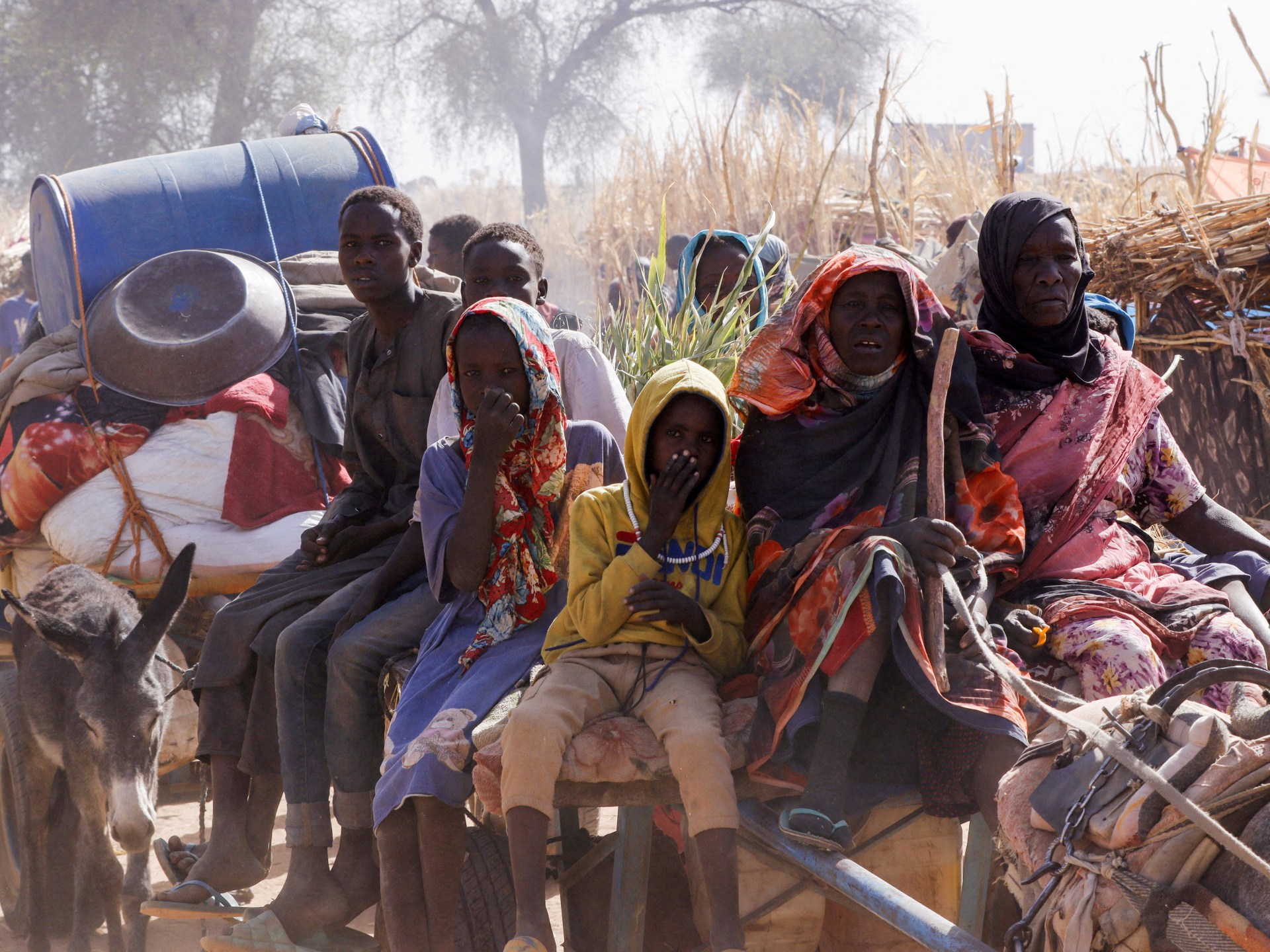
Top UN court says it does not have authority to rule on case accusing UAE of arming rebel Rapid Support Forces paramilitary.
The top United Nations court has dismissed a case brought by Sudan accusing the United Arab Emirates (UAE) of breaching the UN Genocide Convention by arming and funding the rebel paramilitary Rapid Support Forces in Sudan’s deadly civil war.
The International Court of Justice (ICJ) said on Monday that it “manifestly lacked” the authority to continue the proceedings and threw out the case.
While both Sudan and the UAE are signatories to the 1948 Genocide Convention, the UAE has a carveout to the part of the treaty that gives The Hague-based court jurisdiction.
In March, Sudan asked the ICJ for several orders, known as provisional measures, including telling the UAE to do all it can to prevent the killing and other crimes targeting the Masalit people in Darfur.
The UAE called the filing a publicity stunt and, in a hearing last month, argued the court had no jurisdiction.
The court on Monday agreed with the UAE’s arguments, rejected Sudan’s request for emergency measures and ordered the case be removed from its docket.
Due to the lack of jurisdiction, “the court is precluded by its statute from taking any position on the merits of the claims made by Sudan”, a summary of the ruling said.
The UAE hailed it as a legal victory.
“This decision is a clear and decisive affirmation of the fact that this case was utterly baseless. The court’s finding that it is without jurisdiction confirms that this case should never have been brought,” Reem Ketait, deputy assistant minister for political affairs at the UAE’s Ministry of Foreign Affairs, said in a statement.
“The facts speak for themselves: the UAE bears no responsibility for the conflict in Sudan. On the contrary, the atrocities committed by the warring parties are well-documented.”
In an earlier statement, Ketait insisted the UAE “is not involved in the war”.
By a 14-to-two vote, the court threw out Sudan’s request for emergency measures to prevent genocidal acts against the Masalit tribe, which has been the focus of intense ethnic-based attacks by the RSF.
Sudan descended into a deadly conflict in mid-April 2023 when long-simmering tensions between its military and rival paramilitary forces broke out in the capital, Khartoum, and spread to other regions.
Both the Rapid Support Forces and Sudan’s military have been accused of abuses as they battle each other.
The UAE, a federation of seven sheikhdoms on the Arabian Peninsula and an ally of the United States, has been repeatedly accused of arming the RSF, something it has strenuously denied despite evidence to the contrary.
Middle East
Israel bombs Yemen’s Hodeidah port after attack near Tel Aviv | Politics News
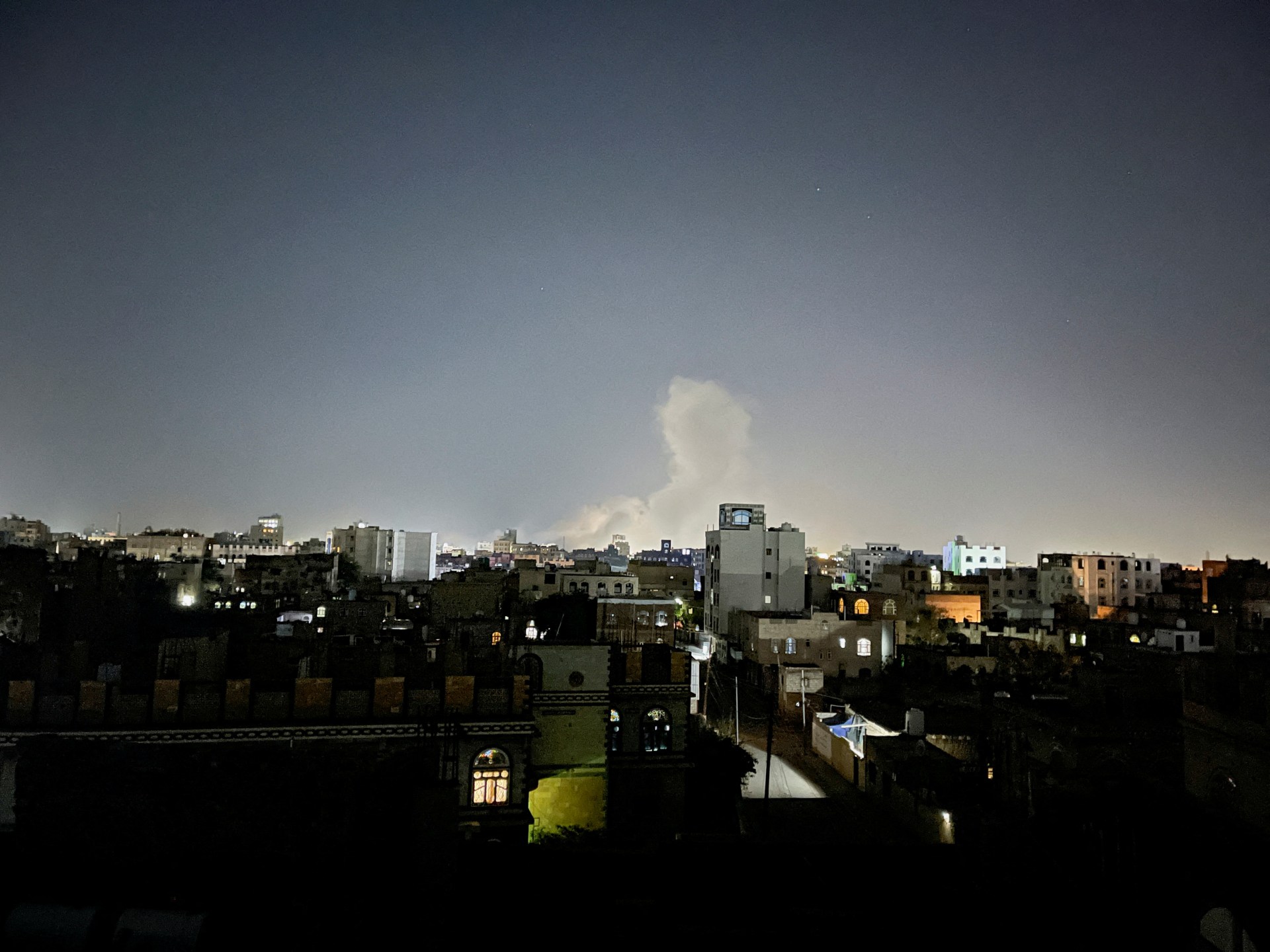
Air strikes come a day after the Iran-aligned Houthis fired a missile that struck near Israel’s main airport.
The Israeli military says it has carried out air strikes on Yemen’s Hodeidah port and a cement factory, claiming the sites were used to support Houthi operations against Israel.
The strikes on Monday injured at least 21 people, the Houthi-run health ministry spokesman Anees al-Asbahi said.
According to the Israeli army, fighter jets struck infrastructure linked to the Houthis, including a cement factory east of Hodeidah that it described as “an important economic resource” used in building tunnels and military infrastructure.
“The Hodeidah seaport serves as a hub for the transfer of Iranian weapons and equipment for military needs,” the Israeli army said in a statement. The claim could not be independently verified.
Houthi-run Al Masirah TV reported that six Israeli strikes hit Hodeidah’s port and blamed both Israel and the United States.
Axios journalist Barak Ravid quoted a senior US official who said the air raids were coordinated between Israel and the US.
A US defence source told Al Jazeera that “US forces did not participate in the Israeli strikes on Yemen today” but did not deny nonlethal support may have been provided.
The attack was carried out after a ballistic missile fired from Yemen on Sunday struck close to Ben Gurion International Airport outside Tel Aviv.
Israeli Prime Minister Benjamin Netanyahu had pledged retaliation for the Houthi attack, the first known missile to avoid interception since the Yemeni group began targeting Israel in November 2023.
‘New phase’ in Israeli attacks on Yemen
Al Jazeera correspondent Ali Hashem reported that about 30 Israeli warplanes took part in Monday’s operation, which was overseen by Netanyahu and Defence Minister Israel Katz from a command centre in Tel Aviv.
Hashem said the strikes mark a “new phase” in Israeli attacks on Yemen.
Since US President Donald Trump returned to power in January, the US has embarked on a more aggressive assault on Yemen “which is related directly to Israeli interests”, Hashem added.
This is not the first time Israel has bombed targets in Yemen. In December, air raids struck the Ras Isa oil terminal and other sites in Hodeidah province, killing at least nine people.
While most Houthi-launched projectiles have been intercepted, Sunday’s attack was the “most significant strike”, Hashem said, since the group launched its campaign in November 2023, which it said is in response to Israel’s war on Gaza and to show solidarity with Palestinians. A drone had previously hit a building in Tel Aviv last year.
Since November 2023, the Houthis, also known as Ansar Allah, have launched more than 100 drone and missile attacks targeting vessels they said are linked to Israel in the Red Sea.
Although the Houthis paused attacks during a ceasefire in Gaza this year, they resumed their operations in March after Israel cut off humanitarian aid to Gaza and resumed its offensive.
Middle East
Trump hails ‘productive’ call with Turkiye’s Erdogan as visits planned | Politics News
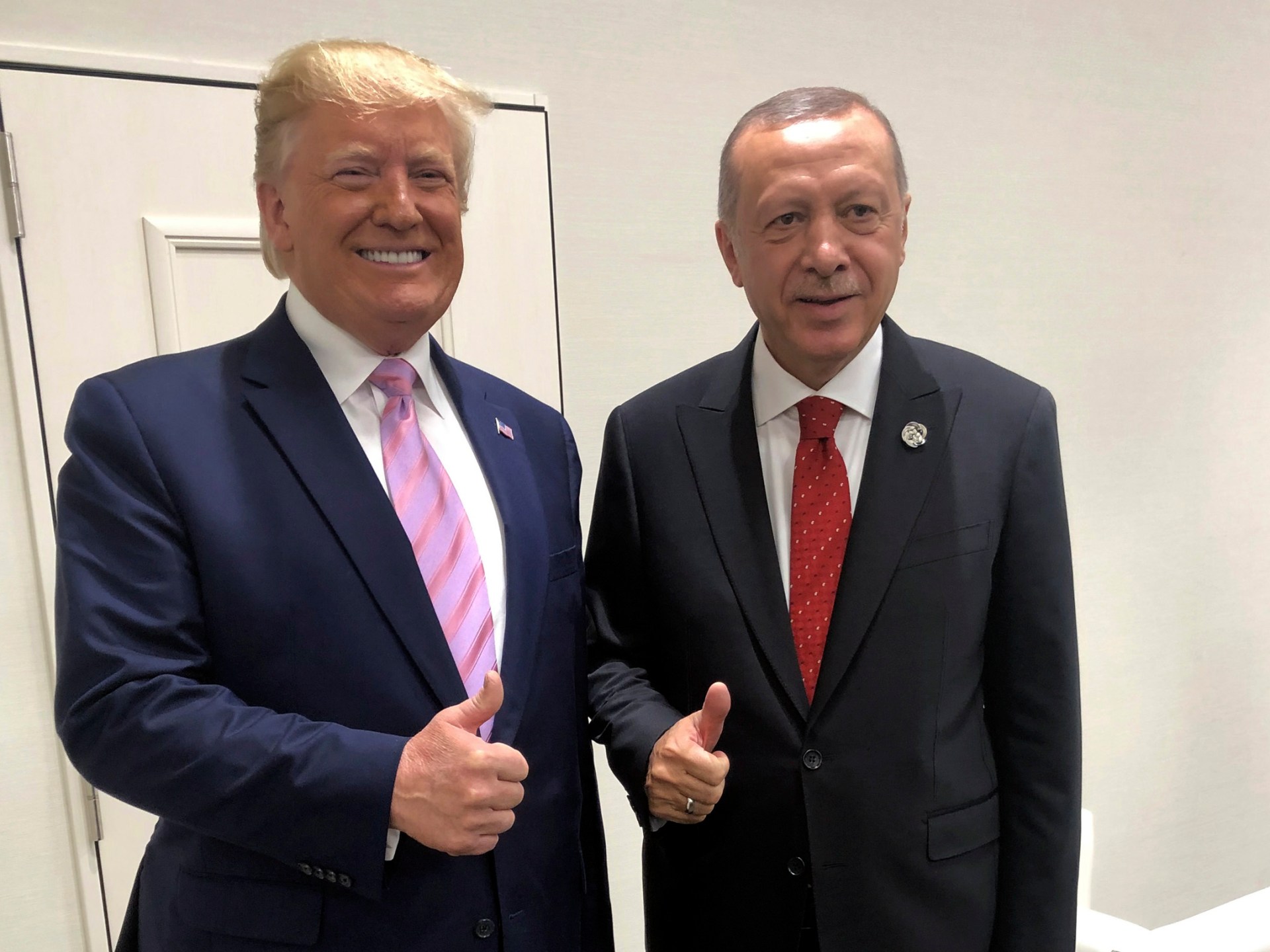
US President Donald Trump says he wants to work with his Turkish counterpart to end Russia’s war in Ukraine.
United States President Donald Trump says he has had a “very good and productive” telephone conversation with his Turkish counterpart, Recep Tayyip Erdogan, and they have discussed a wide range of topics, including how to end Russia’s war in Ukraine, Syria and Israel’s war on Gaza.
During the call on Monday, Trump said Erdogan had invited him to visit Turkiye and he had extended an invitation for the Turkish leader to visit Washington, DC. No dates were announced.
A readout of the call from the Turkish presidency confirmed Erdogan invited Trump for a visit.
The Republican president, who described his relationship with Erdogan as “excellent” during his first tenure at the White House, said the two countries would cooperate on ending the war in Ukraine.
“I look forward to working with President Erdogan on getting the ridiculous but deadly, War between Russia and Ukraine ended – NOW!” Trump said in a post on Truth Social, his social media platform.
NATO member Turkiye has sought to maintain good relations with both of its Black Sea neighbours since the Russian invasion of Ukraine and has twice hosted talks aimed at ending the war.
“Noting that he supports President Trump’s approach toward ending wars, President Erdogan expressed appreciation for the efforts exerted to maintain the negotiation process with Iran and stop the war between Russia and Ukraine,” Turkiye’s Directorate of Communications said in a statement posted on X.
Erdogan also raised the urgent need for a ceasefire in Gaza, warning that its humanitarian crisis had reached a “grave level”, the directorate said.
The Turkish president also stressed the importance of the “uninterrupted delivery of humanitarian aid and the urgent end to this tragic situation”.
On neighbouring Syria, Erdogan reaffirmed Turkiye’s commitment to preserving its territorial integrity and restoring lasting stability.
He said US efforts to ease sanctions on Syria and its new government would help move that process forward and contribute to regional peace.
Regarding bilateral ties, Erdogan said Ankara remained committed to strengthening cooperation with Washington, particularly in the defence sector.
Trump is due to visit Saudi Arabia, Qatar and the United Arab Emirates next week.
Middle East
Fear and intimidation at Newark airport | Israel-Palestine conflict
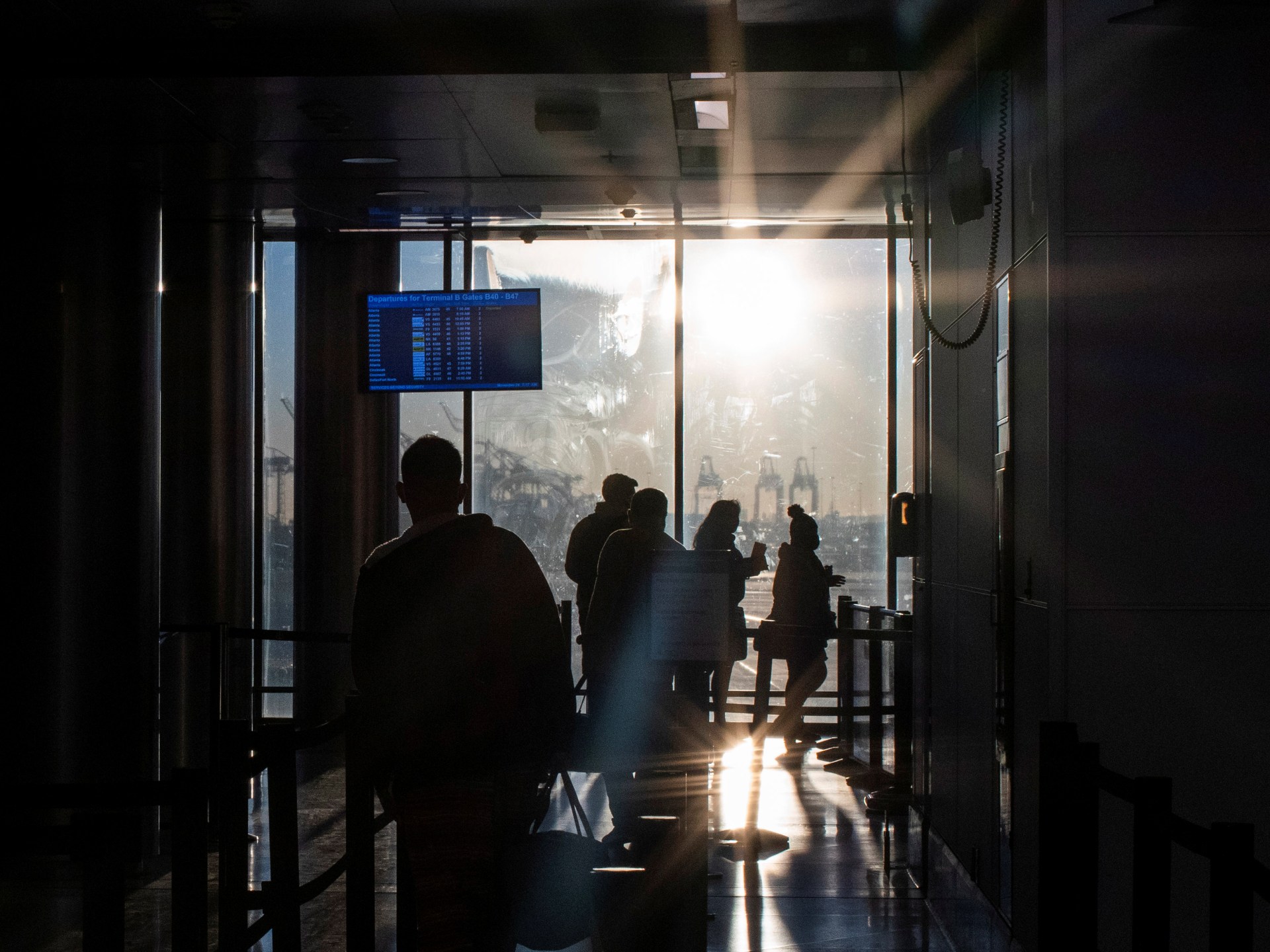
I am no stranger to political repression and censorship. I have lived in Germany for five years now, and as a Palestinian journalist involved in pro-Palestinian advocacy, I have experienced repeated harassment at the hands of the German authorities.
My husband, a German citizen, and I, an American citizen, have grown accustomed to being held for hours at a time, subjected to invasive interrogations about our travels, and having our belongings thoroughly searched without clear justification. But we were shocked to find out that these tactics, designed to intimidate and deter, have now been taken up by the United States to target Palestinians amid the ongoing genocide.
I always knew that citizenship offered only limited protection, especially when dissent is involved. But deep down, I still believed that freedom of speech, the right to speak without fear, meant something in my country of birth.
I was wrong. The harassment we endured on March 24 upon arriving in the US shattered that illusion. Our Palestinian identity, our political work, our family ties – all of it makes us permanent targets, not just in Germany, but now in the US, too.
Prior to departure, while we were at our gate in Frankfurt airport, four agents approached me and identified themselves as officers from the US Department of Homeland Security (DHS). They said they were specifically looking for my husband, who had just stepped aside to buy water and juice for our sons.
“We just want to make sure your ESTA visa is in order,” one of them said.
They took his passport, flipping through it and photographing every single page while one of them stayed on the phone, relaying information. They asked about our visit to Gaza in 2022, after seeing the Rafah border stamp.
“Where did you go in Gaza?” one agent asked.
“Khan Younis,” my husband replied.
“Where does your family live now?”
“All over,” he said. “They’re living in tents across the Strip, you know, because of the war.”
“What did you do while you were there?”
“Visited family,” he answered.
It was clear we were targeted. I did not see any other passengers undergoing a similar check. This meant that either DHS was actively researching passengers before their departure to the US, or – even more troubling – the German authorities were communicating directly with DHS to flag the background and political activity of “suspect” travellers.
Upon arrival at Newark airport in New Jersey, my husband and I were separated and individually interrogated, each of us still holding a sleeping child. The men questioning us did not identify themselves; I believe they were DHS agents, not border police.
They first asked me about the purpose of my trip and my travel to Gaza. They wanted to know who I had met in Gaza, why I had met them, and whether anyone I encountered was affiliated with Hamas. At one point, an officer deliberately became ambiguous and instead of referencing Hamas, asked if “anyone from [my] family was a part of the government in Gaza”.
At one point, they asked whether I experienced violence from Israeli soldiers, to which I responded: “Israeli soldiers weren’t in Gaza in 2022.”
“Did anyone in your family experience violence during this war?”
“Yes,” I responded. “Fifty were killed.”
“Were any of them Hamas supporters?” was the response I received.
As if political affiliation could justify the incineration of a family. As if children, elders, mothers, reduced to numbers, must first be interrogated for their loyalties before their deaths can be acknowledged.
They knew I was a journalist, so they demanded to know the last article I had written and where it was published. I told them that it was a piece for Mondoweiss about the abduction of Mahmoud Khalil, in which I also warned about the dangers of the Trump administration’s policies. This seemed to heighten their scrutiny. They demanded my email address, my social media accounts, and jotted down my phone number without explanation.
Then they took our phones. When I asked what would happen if I refused, they made it clear I had no choice. If I did not comply, my phone would still be taken from me, and if my husband did not comply, he would be deported.
When they finally returned our electronics, they issued a chilling warning to my husband: “You have been here seven times without an issue. Stay away from political activity, and everything will be fine.”
Subsequently, I was advised by legal counsel not to attend any demonstrations, not even by myself, during our stay. Our movements, our words, and even our silences were under watch, and anything could be used against us.
What happened to us was not random; it was intentional. It was meant to scare and intimidate us. Whether it is in Germany, in the US, or elsewhere, the goal of these tactics is the same: to make us feel small, isolated, criminalised, and afraid. They want us to doubt the worth of every word we write, to question every protest we join, to swallow every truth before it reaches our lips. They want us to forget the people we have lost.
Fifty members of our family were murdered in the US-backed genocide in Gaza. Fifty souls, each with their own dreams, laughter, and love, extinguished under the roar of bombs and the silence of the world. Our family’s story is no different from thousands of others – stories that vanish from headlines but live forever in the hearts of the survivors.
They expect us to carry this unbearable weight quietly, to bow our heads and continue living as if our world were not ripped apart. But we do not bow.
And that is why they fear us; they fear a people who refuse to disappear. Palestinians who dare to speak, to organise, to simply bear witness are marked as dangerous.
I was warned that speaking about our experience at the airport would make the next encounter even harsher, even more punishing. But we must remember: there is nothing this state can do to us that can compare to what is being done to the people of Gaza. Our passports are only paper. Our phones are only metal and glass. These are things they can confiscate, things they can break. But they cannot take away our voices, our memories, and our commitment to justice.
On our way out, the officers asked my husband one last question: “What do you think of Hamas? Are they good?”
He responded: “My concern is fighting a genocide that has taken the lives and freedom of my family and my people. Anything else, I am not interested in answering.”
That should be all of our concern. Nothing should distract us from the urgent, undeniable truth: a people are being slaughtered, and our responsibility is to stand with them.
The views expressed in this article are the author’s own and do not necessarily reflect Al Jazeera’s editorial stance.
-

 Lifestyle2 days ago
Lifestyle2 days agoRain Barrel Village gives visitors a taste of old Florida and a photo op with a giant lobster
-

 Europe2 days ago
Europe2 days agoTrump draws criticism with AI image of himself as the pope ahead of the papal conclave
-

 Sports2 days ago
Sports2 days agoPeople close to the fan who fell onto field at PNC Park share positive update
-

 Middle East2 days ago
Middle East2 days agoCanelo Alvarez beats Scull to reclaim undisputed super-middleweight title | Boxing News
-

 Europe1 day ago
Europe1 day agoFather of crypto entrepreneur rescued from kidnappers after having finger severed
-
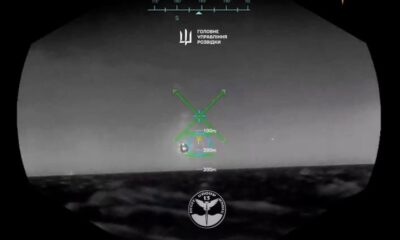
 Europe2 days ago
Europe2 days agoUkraine claims it destroyed Russian fighter jet using seaborne drone for the first time
-

 Sports2 days ago
Sports2 days agoRoger Clemens: Red Sox great watches son Kody hit Fenway Park home run – for the Minnesota Twins
-

 Europe2 days ago
Europe2 days agoVenice is sinking. Now there’s a radical plan to lift the entire city above rising floodwaters




